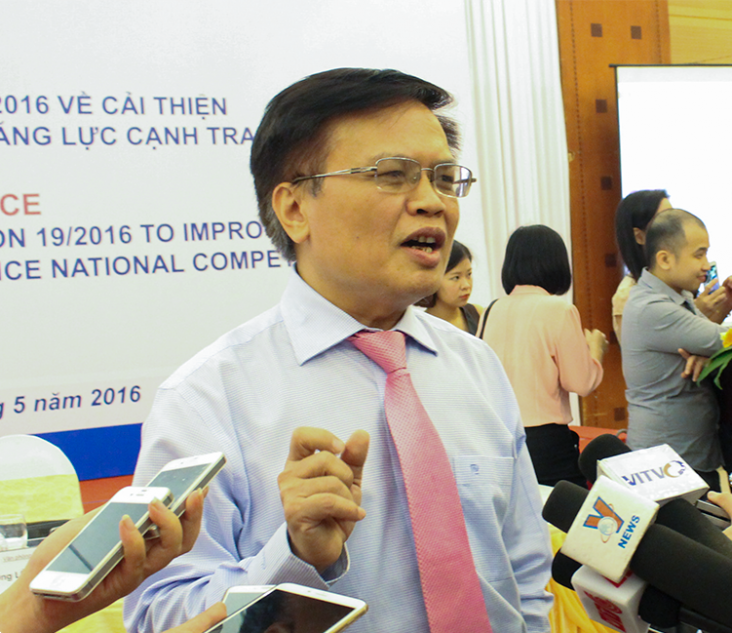
January 2017—“Two years ago, our company struggled with many challenges. It took us at least one week to prepare tax documents, we had to wait many days for our imports to be cleared, and this added high labor costs to our business,” said Vu Kim Giang, an import and export specialist at Garment 10 Corp.
For many years, Vietnam ranked behind most other members of the Association of Southeast Asian Nations in the World Bank’s annual Doing Business Report, which compares the ease of complying with policies and administrative procedures for local businesses across 189 economies. While Vietnam’s development in some sectors has been notable, its ranking has not encouraged foreign investment and trade.
Recognizing the importance of creating an enabling business environment and enhancing competitiveness, Vietnam has undertaken a series of reforms in recent years to improve its business environment and competitiveness. Since 2014, with USAID’s support, Vietnam has implemented three versions of Resolution 19, its business regulatory policy, which sets incrementally higher targets of reform each year and requirements on ministries to revise their internal procedures and relevant legal documents to spur business.
To implement Resolution 19, USAID has worked with the Ministry of Planning and Investment’s Central Institute for Economic Management (MPI/CIEM) and other relevant agencies, focusing on such issues as simplifying procedures on taxes, social insurance, and construction permits while strengthening land and property rights and encouraging judicial administrative procedure reforms.
USAID also has focused on streamlining Vietnam’s import-export procedures to expedite trade. To study the challenges in improving Vietnam’s business environment and to better understand the problems of the business community, MPI/CIEM and USAID made a series of field visits to survey obstacles and needs of businesses and local governments, conducted policy assessments, organized technical discussions with experts, and held consultative workshops.
As a result of efforts implemented through Resolution 19, the 2017 Doing Business Report acknowledged Vietnam’s significant progress over the past year, jumping nine rankings, from 91 in 2016, to 82 in 2017. Vietnam made great strides in the Doing Business indicators on: protecting minority investors (up 31 places); trading across borders (up 15 places); paying taxes (up 11 places); and getting electricity (up five places, combined with a jump of 27 places last year). From 2016 to 2017, businesses in Vietnam reduced time for paying taxes from 872 to 540 hours, time to clear exports from 147 to 115 hours, and time to clear imports from 177 to 145 hours.
“We have seen a big change in the business environment in Vietnam,” said Giang. “Our company has saved time as a result of streamlined tax and customs procedures. We have reduced the time preparing tax documents from one week to a maximum of two days, and reduced the clearance time for our imports by one to one and a half days. Our company’s labor costs were reduced around $45,000 per year, materials are being put in production earlier, and our clients are receiving orders on time. Our business has improved a lot.”
USAID’s Governance for Inclusive Growth program works with the Government of Vietnam to support trade, legal and regulatory reforms, governance, and economic growth for all citizens. The program, which runs from 2013 to 2018, is implemented by Chemonics International.
LINKS
Follow @USAIDVietnam, on Facebook, on Flickr, on YouTube







Comment
Make a general inquiry or suggest an improvement.